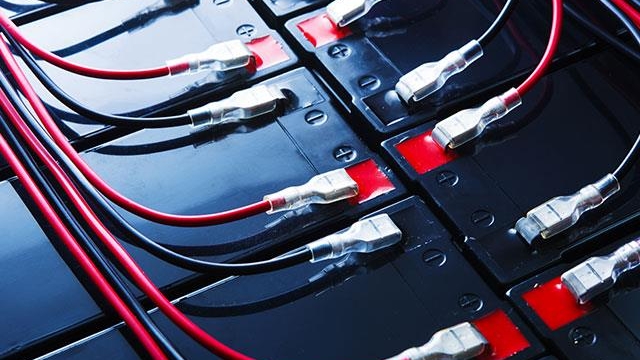Power Up: The Ultimate Guide to Choosing the Right UPS Batteries for Your Needs

In today’s fast-paced world, where technology plays a vital role in our daily lives, ensuring consistent power supply is essential. Whether you are a business relying on critical systems or a home user wanting to protect valuable electronics, understanding UPS batteries is key to safeguarding against unexpected outages. With the right uninterruptible power supply and the appropriate batteries, you can keep your devices running smoothly during a power failure, preventing data loss and equipment damage.
Choosing the right UPS batteries can seem daunting with the myriad options available on the market. Factors such as battery type, capacity, and run time all come into play when making your selection. This guide aims to demystify the process, helping you identify your power needs and select the most suitable UPS batteries for your specific requirements. Let’s dive into the essentials of UPS batteries and discover how to power up your resilience against power disruptions.
Types of UPS Batteries
When selecting the right UPS batteries, it’s essential to understand the different types available on the market. The most common types are sealed lead-acid (SLA) batteries, which are widely used due to their reliability and affordability. These batteries are easy to maintain and can efficiently provide power during outages, making them a popular choice for both home and office environments.
Another option is lithium-ion batteries, which have gained popularity in recent years. They offer several advantages over traditional lead-acid batteries, including a longer lifespan, lighter weight, and faster charging times. Though they come at a higher initial cost, their longevity and efficiency can make them a worthwhile investment for those seeking performance and minimal maintenance.
Lastly, there are gel batteries, which are a subtype of lead-acid batteries. Unlike conventional lead-acid batteries, gel batteries utilize a silica gel that immobilizes the electrolyte, providing a spill-proof solution. These batteries are particularly suited for applications where safety and stability are paramount, as they are less prone to leakage and can operate in a wider range of temperatures. Each type of UPS battery has its unique benefits, making it crucial to consider your specific power requirements and usage environment when making a decision.
Factors to Consider When Choosing
Selecting the right UPS batteries requires careful consideration of several factors. First, assess the power requirements of your devices and the total load that the UPS needs to support. This involves calculating the wattage of all the equipment you plan to connect. Ensure that the UPS has enough capacity to handle peak loads while providing sufficient runtime during outages. Higher capacity batteries can typically sustain longer backup times, making it crucial to match your needs with the specifications of the UPS.
Another important factor is the battery type. There are primarily two types of batteries used in UPS systems: sealed lead acid (SLA) and lithium-ion. SLA batteries are widely used due to their affordability and reliability, while lithium-ion batteries, though initially more expensive, offer longer life, lighter weight, and faster recharge times. Consider your budget and requirements for battery longevity and performance when deciding on the appropriate type for your UPS system.
Lastly, frequency of use and maintenance need to be taken into account. If the UPS will see frequent power outages or heavy use, investing in higher-quality batteries that can withstand more charge cycles may be worth the initial expense. Additionally, think about the maintenance requirements; some batteries may require regular checks and replacements, while others are designed to be low-maintenance. Understanding these aspects will help ensure that you select UPS batteries that align with your usage patterns and maintenance preferences.
Maintenance Tips for Longevity
To ensure your UPS batteries last as long as possible, regular maintenance is crucial. Start by inspecting the batteries at least once a month. Look for any signs of swelling, leakage, or corrosion around the terminals. Clean the battery terminals using a mixture of baking soda and water to eliminate any corrosion, and make sure to dry them thoroughly afterward. Keeping the terminals free from dirt and grime helps maintain a solid connection for optimal performance.
Temperature control plays a significant role in battery longevity. Ideally, UPS batteries should be kept in a cool, dry environment. Excessive heat can cause the batteries to degrade faster, while extremely low temperatures can affect their ability to hold a charge. Aim to maintain a consistent temperature between 20 to 25 degrees Celsius. If your UPS is located in a room where temperatures fluctuate, consider relocating it to a more stable environment.
Finally, perform routine testing of your UPS batteries to assess their health and capacity. Most UPS systems have built-in self-test features that check the functioning of the batteries. Take advantage of these tests and replace any failing batteries promptly. Additionally, consider replacing your UPS batteries every three to five years, even if they appear to be functioning well, as this can prevent unexpected failures and ensure your system is always ready when you need it.



